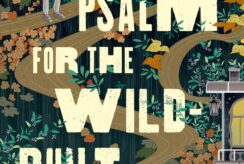Kylie Tusing | Content Editor
One carbon footprint at a time makes all the change. In a world consumed with temporary and fleeting material items, adapting habits that follow zero waste living can help us take the individual responsibility to reduce waste. These can be simple, everyday changes such as using a reusable water bottle, swapping to a wooden toothbrush, shopping at thrift stores or creating a minimalist wardrobe.
Zero waste is a term that has become more popular as topics of climate change, the harmful impacts of corporate companies and our carbon footprints have been discussed more frequently. There are many TED Talks that discuss zero waste living and content creators dedicate their entire lives to living zero waste and sharing it with others. These three books will help you, as the reader, create a zero waste lifestyle by showing you changes you can make to your life, while simultaneously showing you the simple choices you make currently that are harmful to the environment.
The Zero Waste Lifestyle by Amy Korst
Co-founder of the Green Garbage Project, Amy Korst delivers a practical and real guide to creating a zero waste lifestyle. Based on her own life story and the spontaneous goal of ‘sending as little trash to the landfill as possible’ Korst created not only a brand but an entire lifestyle change for herself and her family. This book is written in both narrative and guide-like format for you as the reader to learn and try the changes that impacted her life.
101 Ways to Go Zero Waste by Kathryn Kellogg
If you enjoy list making and want zero waste boiled down straight to the point, there is no better book than this one. Kellogg gives readers exactly the title of simple (but everyday) changes that can alternate and change your carbon footprint. With lists, a short description and pictures, this book is the boiler plate to always keep on the shelf.
An Almost Zero Waste Life by Megean Weldon
Known as “the zero waste nerd” Megean Weldon gives a book on zero waste in the realm of our most basic needs: food. Weldon gives a practical and helpful guide on how our food consumption and the materials it takes is a significant part of waste. She offers advice on how to create habits and styles of eating that limit your carbon footprint all together.
Starting new means starting somewhere and all of these books are the beginner guides to creating a zero waste lifestyle. In the beginning of quarantine we saw news stories on how the earth was healing while nobody was using it. Imagine creating a lifestyle where that is your continuous impact on the earth but the difference is you’re still using it!
